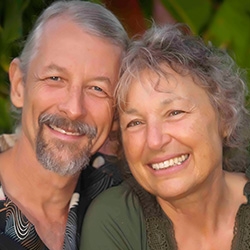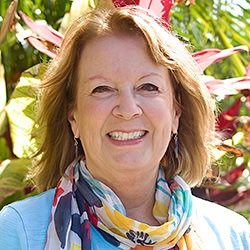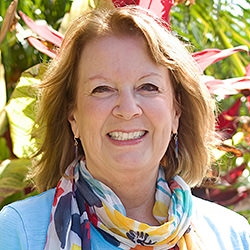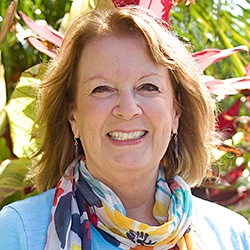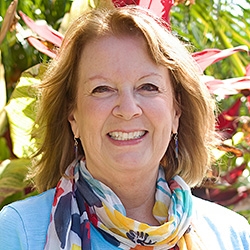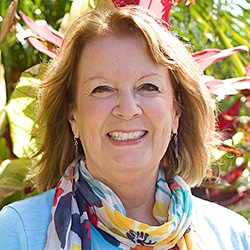

Search Results: questions
-
-
A 1999 discussion with youth on understanding and working with anger.
-
Experience the remarkable healing power of self-empathy, guided by CNVC Certified Trainers, Mary Mackenzie and Raj Gill. In this audio course, the trainers lead participants through a demonstration, and then supplement the learning with discussion and answers to questions.
-
Join CNVC Certified Trainers Jeff Brown, Jean Morrison, Karl Steyaert, Kathleen Macferran, Mary Mackenzie and Sylvia Haskvitz in a lively Q&A session focusing on naturalizing NVC into our daily interactions.
-
Jim and Jori Manske went from poverty to financial independence in 8 years, and they’re making the process they used available to you! Please join them in this inspiring 8-session program to transform your relationship with money, scarcity and abundance.
-
Bring your inquisitive mind and open heart to Miki Kashtan's Theoretical Underpinnings of NVC and learn the principles that underlie the NVC practice.
-
Miki works with a course participant to transform begrudging attendance at a mandatory meeting into the possibility for collaboration, more connection where little is expected and focus on clarity of purpose for meeting in the first place.
-
Recently, I have been pondering anger, how I express it and the jackal story I tell myself about it. Marshall Rosenberg taught that anger is a natural emotion that is based on a judgment of someone else or myself. I agree with this, so I have been doing some “enemy images” and self-empathy work (and praying for those who are most likely to be the recipients of my anger). My goal was to clear my judgments and take responsibility for my “stuff.” It has helped a lot, and yet I still feel a general anger in me that is not directly related to anyone or any specific situation.
-
Last year, I planted my vegetable garden in February. It was an enormous amount of work to get it ready. This year, we decided to move the garden farther away from trees (to avoid the ongoing tree root issue and allow more sun). So, we created 4 new beds. Now, they are ready to be planted, and yet… forward momentum has stalled.
-
The focus of this 6-session class is on shifting the intention of your teaching from how to why while embodying the principles and practice of NVC every step of the way - from planning to delivery. The methodology Miki offers is to start with understanding what the people in your audience face in their environment, continue with what they might want to learn and how NVC principles can provide them with what they want, and end with how you can frame the principles in a language and context that speak to your audience’s familiar experience.
-
Trainer Tip: One of the basic philosophies of Nonviolent Communication is valuing everyone’s needs equally. That means that you consider your needs to be equal to another person’s needs. If someone asks you for empathy, and you choose to empathize at you own expense, you're not living in a Nonviolent Communication consciousness. Be aware of your own needs today when someone asks you to be their emotional support.
-
Physical distancing is opportunity to creatively to meet your needs in new ways. In this containment, with very few cues from others and the environment you now have a rare opportunity with less external distraction to rethink what's truly supportive -- and make significant changes to the less noticable habits of mind, standards and "should's". Applying questions and noticing certain symptoms can support. Read on for more.
-
Trainer tip: Do you get into “right fights”? You know you’re in one when you’re arguing with somebody in order to be right or because you want to win. What needs do I hope to meet from winning or being right? Notice if you enter into a right fight today and shift your focus to your needs and connecting with the other person's needs.
-
- Learn concrete tools for engaging with others as you embrace individual and collective liberation
- Find your own source of choice even in the face of challenges
- Release the constriction of scarcity
- Find an empowered option to respond to what is happening in our world
- Open the door to the possibility of thriving rather than merely surviving
-
- Inscrease compassion for yourself through understanding why your capacity may lag so far behind your commitment and what you can do to bridge the gap
- Higher Compassion for your children as you understand better what life is like from within their own experience rather than from the outside looking in
- Surge in energy that you can put into new conversations with them designed to make agreements that are based on the truth of where you all are rather than on any "should"
-
Trainer Tip: Notice when you're tempted to wield physical, emotional, and intellectual power to get your children to do what you want. This coercion or force may bring short term ease, but long term it can be counterproductive. Ask yourself “What do I want my child to do?” and “What do I want my child’s reasons for doing it to be?”. Then consider ways to help them connect to their intrinsic motivation for doing it.
-
Trainer Tip: In our effort to be heard, we often forget to listen. In fact, your need to be heard will not be met completely until you have heard how what you said affects the other person. If we want to ensure that we're heard we can ask the other person to reflect what they heard us say. And we can hear what's going on with them. It is important to remember that a dialogue is not complete until both people have been heard.
-
If you answer yes to at least one of the questions below, then this course may be key to building the relationship you want with your children:
- Do you know in your bones that you want to build a relationship in which both your needs and those of your children are fully included?
- Are you tired of seeing yourself time and again using methods to get your children to "cooperate" that you don't actually subscribe to?
- Do you struggle to imagine how to find enough hours in the day to collaborate for real with your children?
- Do you brace for any conversation with extended family and community who criticize you for being too soft with your children?
- Do you often feel all alone and wonder if you are actually on the right path?
-
- Reclaim the lost voices of your ancestors
- Understand the impact of collective trauma on your family line
- Open yourself up to have more warmth for yourself and your children
- Restore the flow of love and energy from past generations
-
Would you like to learn how to:
- Use line and color to deeply connect with the feelings and needs that are alive for you ?
- Find a way forward that comes from your creative self ?
- Meet your creative self, even if you have never had the pleasure of meeting it before ?
Come join Olga Nguyen for Neuroart / Visual NVC– even if you have never drawn or painted before, and even if you are a professional in the midst of a creative block!

Quick Links
Subscription Preferences
Stay In Touch!
Looking for ways to keep up with NVC Academy news, get special offers, free resources, or words of inspiration? Here are five ways to stay engaged:




